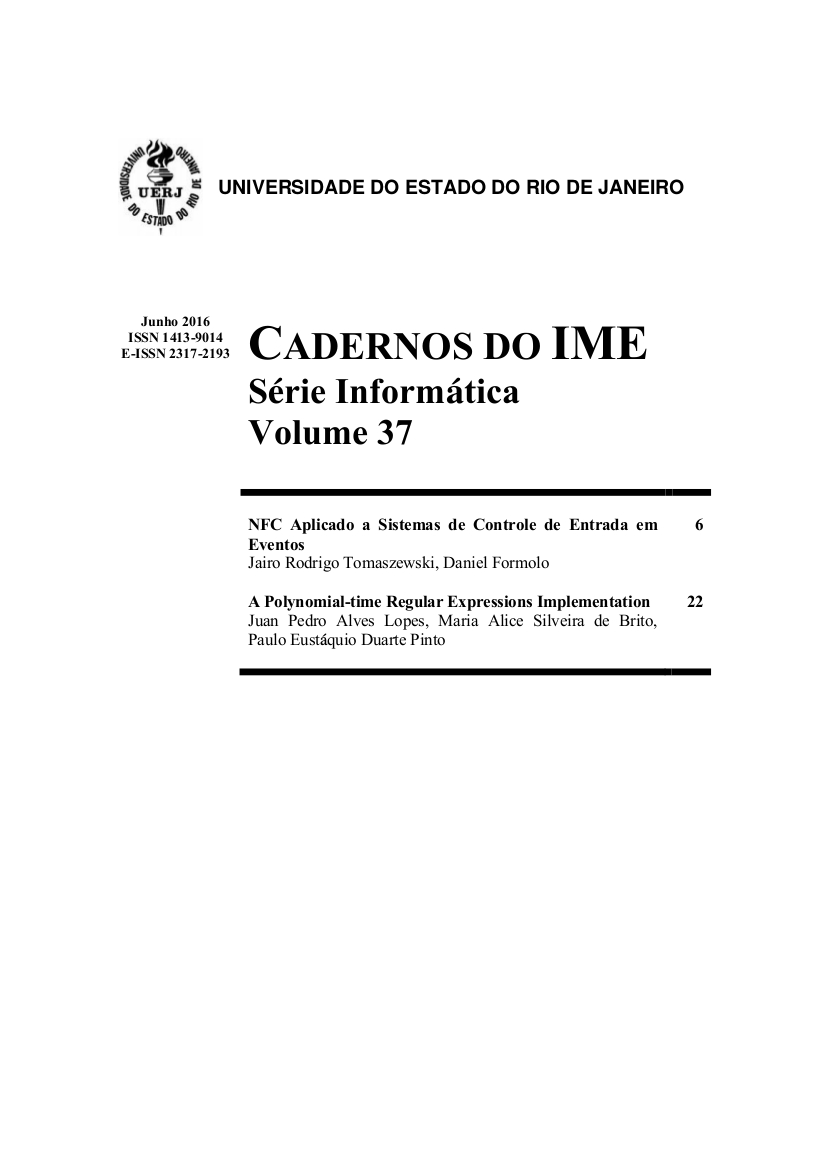A Polynomial-time Regular Expressions Implementation
DOI:
https://doi.org/10.12957/cadinf.2016.13778Resumo
Regular expressions are a notation to define regular languagesin terms of simple composable operations. They are equivalentto finite automata in expressive power. In practice, however, modernregular expressions implementations diverge from the original theory.Most changes are made to allow greater expressive power. This conveniencecomes at the cost of making language membership a harderproblem than it could be. In many modern languages, the regex languagemembership is a NP-complete problem. Besides, the way they areimplemented sometimes causes expressions that could be processed inlinear time to take exponential time. This fact may be seen as a securityrisk for many applications that use regular expressions. In this work, wesuggest a simple implementation (based on Thompson’s ConstructionAlgorithm) that has superior worst-case performance than many popularimplementations. We also introduce a didactic notation for automatacreated by this algorithm that makes the adopted implementation easierto understand.Downloads
Não há dados estatísticos.
Downloads
Publicado
2017-03-24
Como Citar
Pinto, P. E. D., Lopes, J. P. A., & Brito, M. A. S. de. (2017). A Polynomial-time Regular Expressions Implementation. Cadernos Do IME - Série Informática, 37(Junho), 22–36. https://doi.org/10.12957/cadinf.2016.13778
Edição
Seção
Artigos

